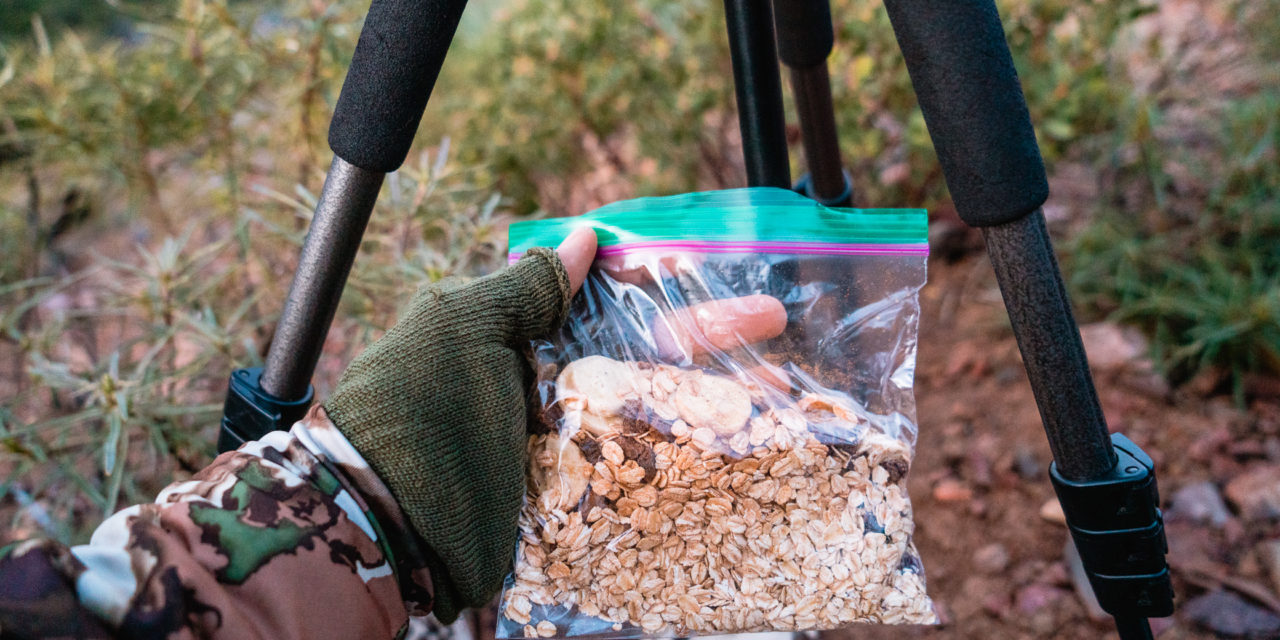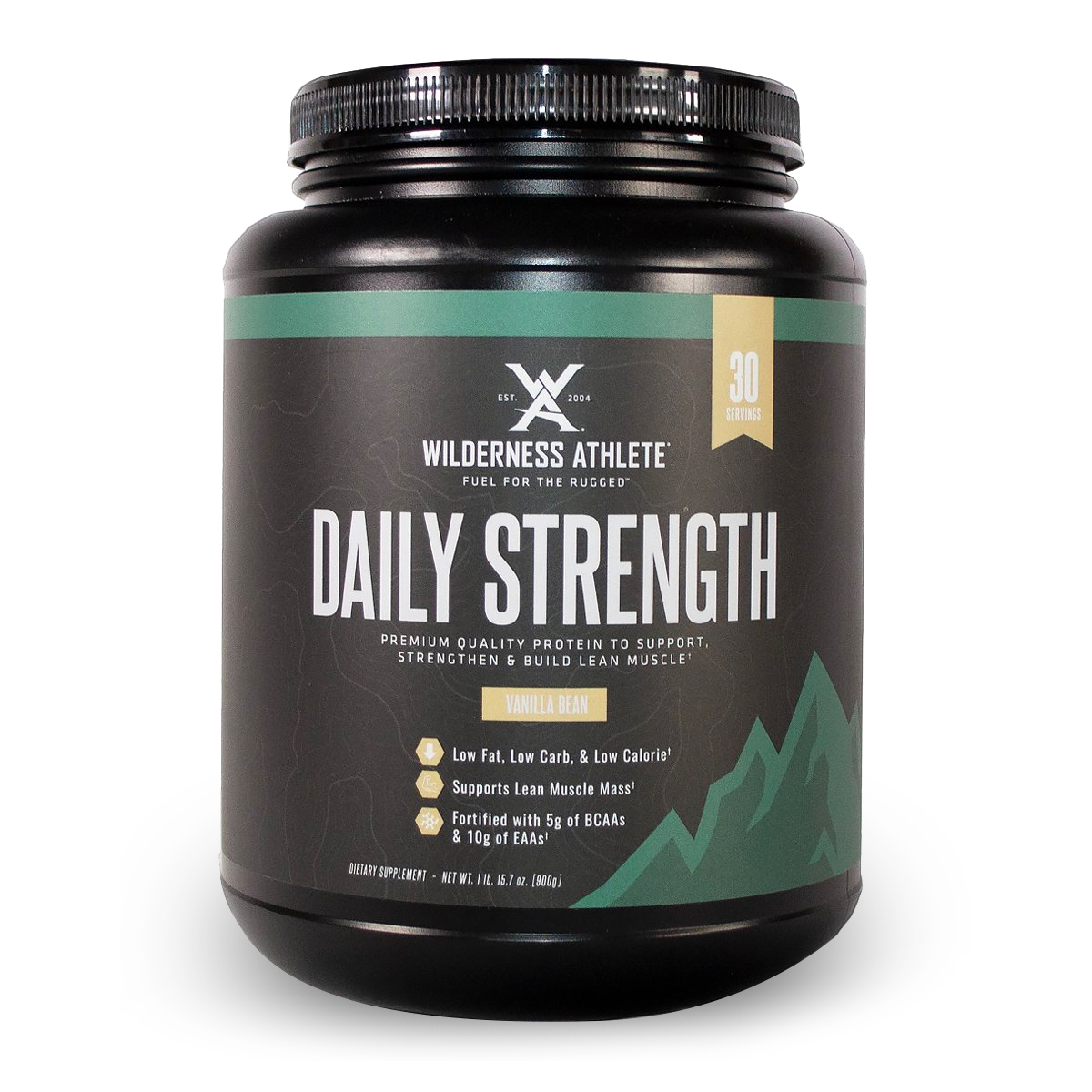Hands down one of the major things folks always have questions about when it comes to backpack hunting is food. Everything from how much food to bring on a trip, to what exactly that food is. Right on the surface most aspiring backcountry hunters gravitate towards the freeze dried meals on the shelf at their local sporting goods store. It makes sense and I get it. While that may be the most convenient thing to do though, it’s not the best by a long shot. Backpack hunting is hard and is full of physical demands that require good fuel to tackle day in and day out. What if I told you that you could supplement at least some of that store bought stuff for some homemade goodness of your own? It’s better fuel for the task at hand, which is gonna elevate your performance in the field. Let’s dive into the world of making your own backpacking meals.
How Do You Make Your Own Meals for Backpack Hunting?

Right off the cuff, let’s just take a look at how someone would even go about making their own backpacking meals. It’s really not as complicated as it sounds and quite easy. This can honestly be as simple as throwing something like a tortilla with peanut butter in a bag, all the way to dehydrating out your own dinners. How much effort one puts in is going to vary from person to person and their time availability. You can make everything at home though if you choose.

Aside from the stuff that doesn’t require any cooking, a dehydrator is going to be your best friend for backcountry meals and snacks. Doing things like dehydrating fruit or jerky make for great snacks on the mountain. Not to mention, you know exactly where that food came from. It didn’t come in a bag with a bunch of weird stuff that’s hard to pronounce in the ingredient list. Fruit and jerky are pretty cut and dry. Just cut thin slices of either, add on whatever seasoning if any, put them in the dehydrator and fire it up.

For actual meals it’s a little more involved. Stuff like chili does great for this. Whatever it is you’dlike to make though, make sure that you cut up any veggies or meat fairly small before adding tothe dehydrator. These small cuts are going to dehydrate better than bigger ones. After cooking the meal beforehand, I’ll spread out a serving on each tray as thin as I can get it (I’ve got a 5 tray dehydrator, so it’ll make 5 meals at a time). From there, just fire it up and let it go. When everything is dried out and crispy, it’s done. The cool thing about this is that you can’t over dehydrate something, so it’s hard to mess it up. To give you a general idea though, chili takes me anywhere from 9-12 hours to dehydrate.
Advantages
One of the biggest advantages to making your own snacks and meals for backpack hunting has to do with something I said earlier in this article. This stuff you’ll make at home is just higher quality than most of what you’ll get at a sporting goods store. I say most because there are some companies that do make higher quality meals with less ingredients. With the better food, you’re putting better fuel in your body. This means no more gut pains, better energy levels, and better recovery for more action the next day. It is so important that we care about what we’re eating out there. I’ve seen it more than once when someone “bonks.”

Along with better fuel, we’re also saving some coin. Let’s be honest. The store bought backpacking meals are expensive. When you’re only going out for a few days, it’s not too bad. For a 10 day trip though, you’re talking around $150 just in dinners. I can make a whole pot of chili for under $12 and get 5 dehydrated meals out of it. Even if you don’t replace all of the meals and just half, you’re still saving a good chunk of change.
Disadvantages
While making your own meals and snacks for backpack hunting sounds like a ride on the gravy train, there are some drawbacks to doing so. The first and most obvious is going to be time. It flat out takes an investment in time to prepare all of this food. Whether you’re pre-making bags of oatmeal, which we’ll talk about below, or dehydrating some delicious entrees, the clock is ticking during all of that. So, it definitely lacks in convenience.

Another disadvantage to making your own food, particularly on the dinner front, is there is a bit of cost up front. In order to do this successfully you’re going to need to purchase a dehydrator. Now, if you already happen to have one for making jerky and what not, awesome. You’re ahead of the curve. If not though, you’ll probably drop a few hundred bucks for a good one. Having something with 5 trays or more is ideal, just because you can dehydrate a substantial amount of food all at once. With less trays than that, you’ll have to do more dehydrating sessions, which is going to take even more time.
Oatmeal Recipe

Talking about DIY backpacking food and not giving you a recipe to try out would be border line wrong. So, I’m going to lay out a great breakfast option that’s easy, doesn’t require a dehydrator, and is delicious. This is an oatmeal recipe that I will often bring with me into the backcountry:
Ingredients:
- 1 cup of rolled oats
- 1/8 cup raisins
- 1 scoop of Wilderness Athlete Daily Strength (either chocolate or vanilla flavors are good)
- 1 teaspoon of cinnamon
- 1/4 cup of dehydrated fruit to your liking. I like bananas
- 1 almond butter packet
All of these ingredients are thrown into a freezer Ziploc bag, aside from the almond butter. In the field, just add in the almond butter, around 6 oz of boiling water (more or less depending on how thick you like your oats), give it a stir, and let it steep with the lid closed for 3-5 minutes.
End Note

Fall hunting seasons are fast approaching and this whole jig is about to really get going. It is a time of anticipation for what’s to come and when our imaginations run wild. This is also a time for preparation though and there is no reason that food shouldn’t be included in that equation. Taking the time to prepare some, or all, of your own backpacking meals is not only beneficial to your performance in the field, but it really has a way of bringing things full circle. That hit me years back when first diving into this self made food thing. I was packed into some rugged backcountry for a spring bear hunt. Sitting there and glassing for bears while eating the bear chili that I prepared ahead of time just felt right to me. Full circle. So, to answer the question to this whole article, I say “yes.” DIY backpacking meals not only elevate your performance, but elevate the experience as well.






